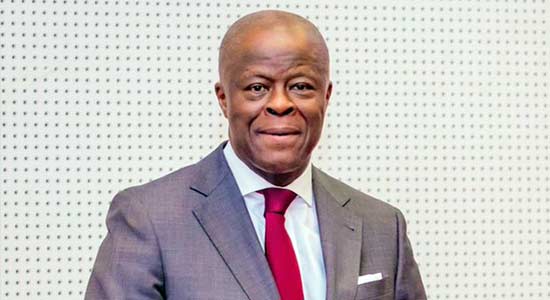NADF advocates inclusive financing to attain food security
The National Agricultural Development Fund has called for inclusive financial solutions that address the specific needs of marginalised groups to boost food security in Nigeria.
This appeal was made during a two-day Stakeholder Engagement Workshop on “Inclusive Stakeholder Engagement for Gender-sensitive and Climate-smart Financial Products,” which took place in Abuja on Wednesday.
In his opening remarks, the Executive Secretary of NADF, Mohammed Ibrahim, highlighted the importance of inclusive financing in addressing the multiple challenges facing Nigeria’s agricultural systems.
He emphasised the need for financial products that specifically cater to women, youth, and smallholder farmers, who are often underserved in the sector.
The NADF was established with a mandate to facilitate systemic transformation in the agricultural sector, particularly by removing barriers for underrepresented groups.
Ibrahim pointed to ongoing initiatives, including the GRATE project, which focuses on advancing gender equality and building climate resilience in farming practices.
“Inclusivity, for us, means ensuring that no one is left behind. It is about addressing the specific needs of women farmers, youth, and marginalized communities by tailoring financial products that are accessible, affordable, and aligned with their realities,” he said.
He also emphasised the importance of sustainability, noting that financial products and initiatives must not only meet the current needs of the agricultural sector but also be adaptable to future challenges such as climate change.
“Sustainability ensures that the programmes and products we create today will remain impactful for generations to come,” he added.
The workshop brought together diverse stakeholders, including policymakers, financial institutions, development partners, research bodies, and community representatives.
Ibrahim acknowledged the importance of these varied voices in shaping solutions to Nigeria’s agricultural challenges.
“The role of stakeholders like you cannot be overstated. You bring expertise, experience, and on-the-ground insights that are critical to developing solutions that work,” he added.
He also recognised the significant contribution of GIZ, a key partner in advancing gender-sensitive and climate-smart agricultural practices in Nigeria.
“Through the AgSys project, GIZ has demonstrated a steadfast commitment to supporting gender-sensitive and climate-smart agricultural practices in Nigeria. Their technical expertise and resources have been instrumental in shaping this workshop,” he said.
The Project Manager and Coordinator of Cluster Transformation of Agrifood Systems at GIZ, Andrea Ruediger stressed the importance of integrating the discussions on food security, gender empowerment, and climate resilience.
“From GIZ’s perspective, it is crucial that the conversation on food security and climate change does not happen in isolation. These issues must be addressed side-by-side. This is why we support this event—to help NADF operationalize its five-year strategy and mainstream climate-smart agriculture and female empowerment across all aspects of agricultural financing,” she said.
The Head of International Partnerships at NADF, Naona Usoroh explained that the purpose of the workshop was to engage stakeholders from diverse sectors to gather insights and feedback on developing gender-sensitive and climate-smart financial products.
“In partnership with GIZ, we are organizing this event to gather feedback from key stakeholders across the public and private sectors, civil society, farmer organizations, and financial institutions. This feedback is crucial for us as we design, develop, and deploy products that address the needs of these groups,” Usoroh said.
She pointed out that women play a crucial role in Nigeria’s agricultural workforce but often face significant barriers in accessing critical resources. Usoroh emphasized that NADF is focused on creating products that ensure inclusivity for both female and male smallholder farmers.
“Women make up the majority of the workforce in agriculture, yet they face the most barriers when it comes to accessing resources,” Usoroh said.
Principal Manager and Head of Climate-Smart Agriculture and Renewable Energy at the Nigeria Incentive-Based Risk Sharing System for Agricultural Lending, Nkolika Achigbu, spoke about efforts to enhance access to finance for women farmers.
She explained that NIRSAL is actively working to create financing models that address the specific challenges women face in agriculture, including access to inputs and land.
“Climate change is real, and we need to look at financing products that take into account the risks of droughts and flooding. At NIRSAL, we have designed a gender-focused model that helps women access inputs such as seeds, and we’re also focusing on green financing to help mitigate the impacts of climate change,” she said.







